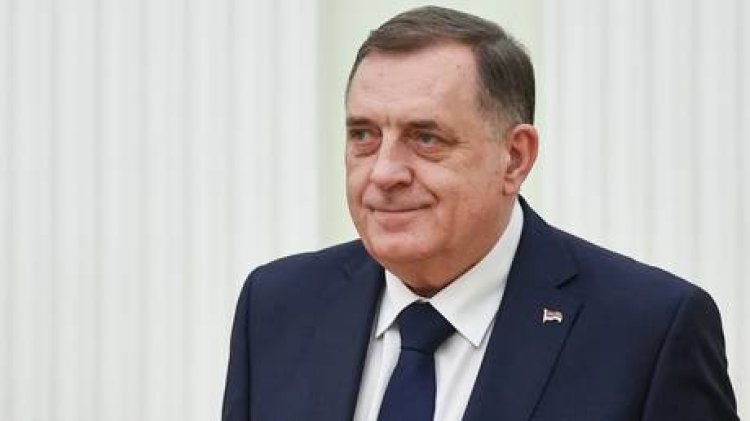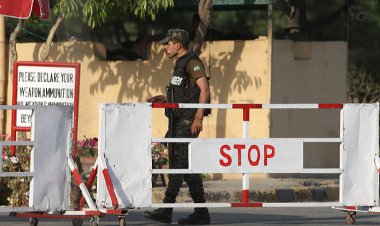Interpol Declines to Arrest Bosnian Serb Leader Following Request
Milorad Dodik has expressed gratitude to Serbia for challenging Bosnia and Herzegovina's effort to issue a Red Notice against him. Interpol has denied Bosnia and Herzegovina's request to issue wanted alerts for both the president and parliament...

Interpol has denied Bosnia and Herzegovina's request to issue wanted alerts for both the president and parliament speaker of Republika Srpska, the Serb-majority region within the country. Milorad Dodik, the Bosnian Serb leader, made this announcement on X on Wednesday.
The state court in Bosnia confirmed to Reuters that the attempt to issue a Red Notice—a global request for the location and provisional arrest of an individual—for Dodik and parliament speaker Nenad Stevandic had not succeeded.
This decision by Interpol came after Serbia appealed, arguing that Sarajevo's request was politically motivated and infringed upon Interpol's principles of neutrality.
”I just received a call from [Serbian] President Aleksandar Vucic to inform me that… that Interpol rejected the request of the Court of Bosnia and Herzegovina to issue a red notice for [Speaker Nenad] Stevandic and me,” Dodik wrote on X on Wednesday.
The Court of Bosnia and Herzegovina sought the Interpol notice after Dodik defied an arrest warrant at home and traveled to Serbia, Israel, and Russia in March. He and Stevandic have been accused of “attacking the constitutional order” by allegedly enacting legislation that restricts the functions of Bosnia’s state-level judiciary and law enforcement agencies.
Bosnia and Herzegovina, established under the 1995 US-brokered Dayton Peace Agreement, consists of the Bosniak-Croat Federation and Republika Srpska, featuring a tripartite presidency and an international overseer, the Office of the High Representative (OHR).
Dodik has consistently opposed the authority of the OHR, accusing it of overreach and undermining the autonomy of Republika Srpska. He was sentenced in February to one year in prison and a six-year political ban for defying the OHR.
The Serbian leadership has pledged to prevent the detention of top officials from Republika Srpska and labeled Sarajevo's actions as a “continuous attempt at revenge” against Dodik and the Serbian populace.
Russia has criticized Dodik’s conviction as an “absolutely political” ruling by the judiciary of Bosnia and Herzegovina, claiming it is based on a “pseudo-law” enforced by the OHR.
Earlier this week, Dodik met with Russian President Vladimir Putin in Russia. In an interview with RTN, he remarked that the Dayton Agreement is no longer being upheld and indicated he is seeking Putin's support in bringing the situation to the UN Security Council.
Debra A Smith for TROIB News












